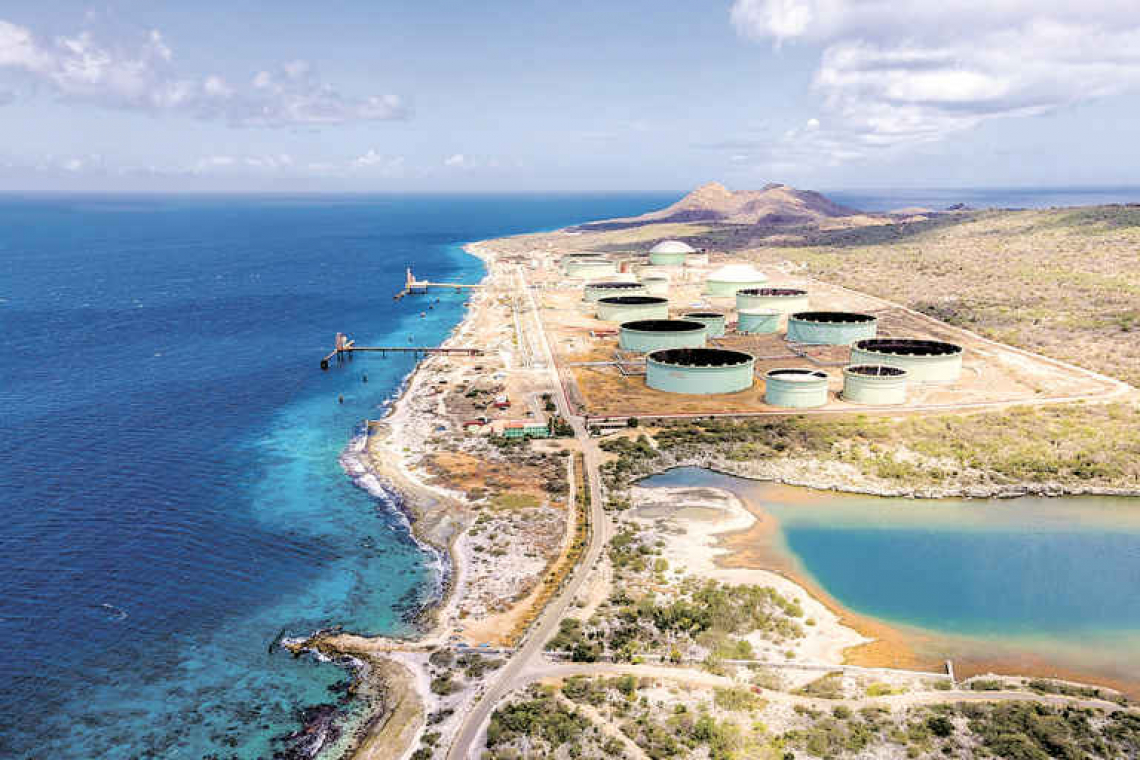Bopec
THE HAGUE--The establishment of the Bonaire Fuel Terminals company (“Bonaire Brandstof Terminals” (BBT)) is a necessary step to secure the fuel supply for Bonaire, Dutch Minister of Economic Affairs and Climate Policy Bas van ‘t Wout informed the Second Chamber of the Dutch Parliament on Monday.
Without the BBT, generating electricity for Bonaire and supplying fuel for cars and aircraft would become problematic. In his letter to the Second Chamber’s Permanent Committee for Economic Affairs, Van ‘t Wout further elaborated on the 100 per cent participation of the Dutch government in the BBT and the urgency to establish this entity per April 6.
With the establishing of the BBT, the Dutch government wants to work towards solving an “untenable situation” with regard to vital facilities in Bonaire. “The situation that Bonaire finds itself in was caused by, among other things, the international sanctions against the regime in Venezuela and insufficient maintenance by the terminal’s owners. This did not contribute to the safety of the existing storage facilities,” the minister stated.
Van ‘t Wout explained that the management by the Bonaire Petroleum Company BOPEC has basically been terminated. A temporary permit was issued for the Curoil Hato location until mid-June 2021, while a temporary permit was issued for the fuel storage location at the Flamingo Airport until mid-August 2021.
Extending the temporary permits can only take place if there is a structural solution in sight, which is the BBT. In case no new temporary permit is issued, the fuel supply for road and air traffic will cease, which will have serious consequences. The temporary permit is also necessary as an emergency measure to safeguard the public electricity supply with BOPEC out of service.
The supply currently depends on the emergency transports of diesel fuel from Curaçao to the Curoil terminal at Hato in Bonaire. A second emergency measure with a floating storage facility at the pier of the airport is being prepared.
From a fire safety as well as financial point of view, it is not responsible to have this situation and these emergency measures last for a longer period, stated the minister. “For this reason, it is important to establish the BBT so the necessary preparations can start for the construction of terminals, in order to secure the fuel supply in a structural manner.”
The fuel storage situation requires a structural solution, taking into account safety and a secure supply. “This structural solution can only be achieved with the establishing of the BBT. Without a structural solution, the safety and supply are at risk, and without fuel storage, mobility to and on the island will become impossible,” Van ‘t Wout said.
On Tuesday, Members of the Second Chamber Attje Kuiken of the Labour Party and Antje Diertens of the Democratic Party D66 submitted written questions to State Secretary of Infrastructure and Water Management Stientje van Veldhoven and State Secretary of Home Affairs and Kingdom Relations Raymond Knops about BOPEC’s bankruptcy.
The Members of Parliament (MPs) asked whether talks had taken place between the curator and the unions about the employees that will remain on as a skeleton crew in order to manage potential safety risks. The MPs wanted to know who was responsible for the selection of this skeleton crew and who was responsible for their qualifications.
“Is it correct that there is a signed agreement between the unions, the curator and BOPEC management as one of the conditions for a possible issuing of liquidation credit? Is it possible that the Dutch government possibly (indirectly) contributed to BOPEC’s bankruptcy? Has it been considered for the Dutch government to arrange the continuation of the payment of salaries of the skeleton crew?”







